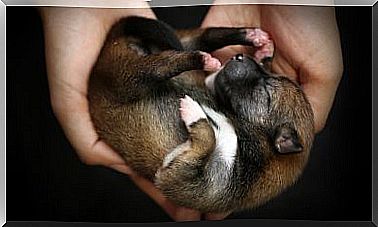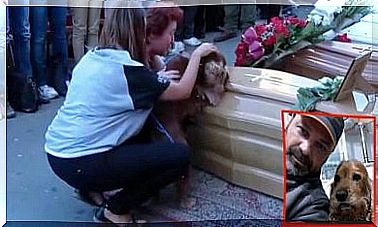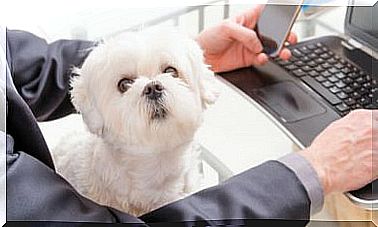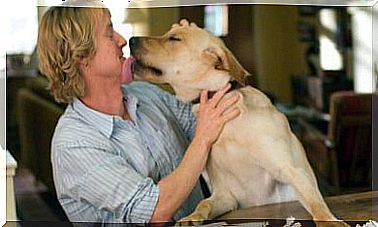Eye Care For Pets
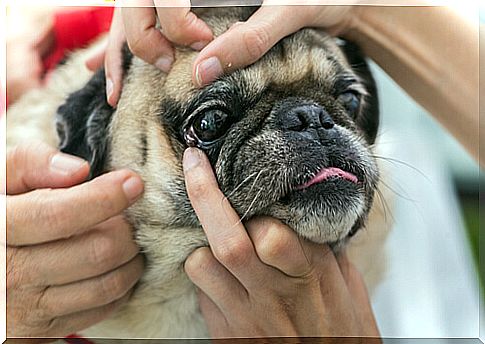
Eye care for your pet is as important as a balanced diet and enough daily exercise. Checking your pet regularly to detect any anomalies in time is a prudent act that you should not forget.
One of the most common conditions is eye discharge and, although it is more common in dogs, some cats may suffer from it. This could be a sign of anything from an infection to glaucoma to allergies.
Eye conditions in pets
Secretions
If your pet has clear eye discharge, it is likely caused by allergies or something physical, such as dust in the eye. A watery discharge or mucus is often a sign of a foreign body, such as an eyelash, while a greenish-yellow or pus-like discharge could indicate a serious infection.
It is advisable to consult the vet when these types of secretions occur to find out the main cause. Some of these problems can result in blindness or the loss of an eye, if not treated in time.
Conjunctivitis
This is a type of inflammation of the lining of the eye that can cause yellow pus that makes vision uncomfortable. It is usually accompanied by eye redness and sensitivity to light, so your pet will want to keep his eyes squinted. The most common causes are lack of eye care, allergies and dry eye due to obstruction of the tear duct.
Epiphora or excessive tearing
If your pet has watery eyes, and the skin on the eyelids is blotchy or smelly, it may be a corneal ulcer. Excessive tearing can also be the result of abnormal eyelashes, tear duct obstruction, or tumors.
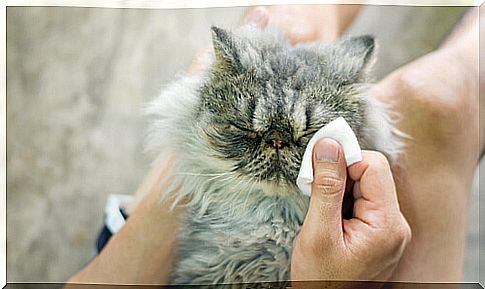
Dry Eye
A failure to produce enough tears for cleaning and eye care can be evidenced by the presence of sticky secretions. It can also include mucus and inflammation of the eyeball. This condition can be the result of an injury near the gland that causes tears or failure of the immune system.
Glaucoma
This condition is caused by excessive pressure in the eye and can be detected in a number of ways: one eye or both bulging, cloudy eyes, and sometimes excessive tearing. Glaucoma causes a lot of pain, so the vet may try to control eye pressure with medication, but surgery may be recommended.
Eye care and prevention
First, become familiar with your pet’s eye shape and features. Take a look at your eyes frequently – the pupils should be the same size and bright, with white around the iris. There should be no breakage and the inner lids should not be visible. The inside of the lower eyelids should be pink, not red or white.
If you notice rips, discharge, tear-stained fur, cloudiness, closed or narrowed eyes, or pupils of uneven size, something could be wrong. It’s time to go to the vet.
To keep dogs’ eyes bright and healthy, you need to keep the fur out of their eyes. Take your dog to a dog groomer or use round-tipped scissors to trim it yourself. Cats do not usually have this problem, but it makes sense to stay alert and do the suggested regular checkups.
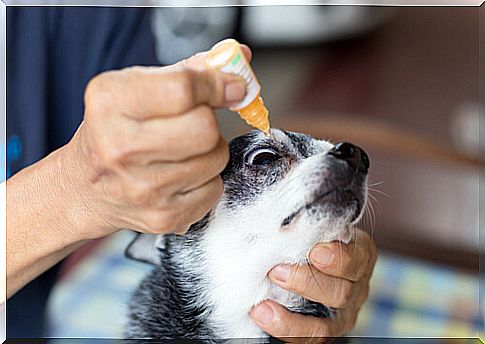
Pets that tend to exercise in the field may be more prone to getting foreign bodies in their eyes. However, city animals do not escape from these conditions and special care must also be taken and the respective visual verification done periodically.
Provide routine maintenance
For your pet’s eye care, it is important to perform routine maintenance, preferably with a piece of soft cotton cloth. Gently clean around the eyes and in the corners, while making sure not to touch the eyeball. A couple of times a week is a good routine for most pets.
You can use a sterile eye wash or commercial eye wipes to keep the skin around your pet’s eyes clean. There are also ophthalmic ointments to protect the eyes before bathing your pet. Keep in mind that even neutral shampoos can cause irritation if it gets in your eyes or if it is not rinsed out quickly enough.
Eye care for your pet is very important. Make sure you provide the necessary care and control any problems, and contact your veterinarian if you have any questions regarding your pet’s eye health.
